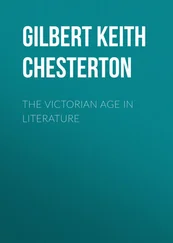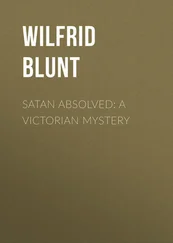Michael Kurland - Victorian Villainy
Здесь есть возможность читать онлайн «Michael Kurland - Victorian Villainy» весь текст электронной книги совершенно бесплатно (целиком полную версию без сокращений). В некоторых случаях можно слушать аудио, скачать через торрент в формате fb2 и присутствует краткое содержание. Жанр: Классический детектив, на английском языке. Описание произведения, (предисловие) а так же отзывы посетителей доступны на портале библиотеки ЛибКат.
- Название:Victorian Villainy
- Автор:
- Жанр:
- Год:неизвестен
- ISBN:нет данных
- Рейтинг книги:5 / 5. Голосов: 1
-
Избранное:Добавить в избранное
- Отзывы:
-
Ваша оценка:
- 100
- 1
- 2
- 3
- 4
- 5
Victorian Villainy: краткое содержание, описание и аннотация
Предлагаем к чтению аннотацию, описание, краткое содержание или предисловие (зависит от того, что написал сам автор книги «Victorian Villainy»). Если вы не нашли необходимую информацию о книге — напишите в комментариях, мы постараемся отыскать её.
Victorian Villainy — читать онлайн бесплатно полную книгу (весь текст) целиком
Ниже представлен текст книги, разбитый по страницам. Система сохранения места последней прочитанной страницы, позволяет с удобством читать онлайн бесплатно книгу «Victorian Villainy», без необходимости каждый раз заново искать на чём Вы остановились. Поставьте закладку, и сможете в любой момент перейти на страницу, на которой закончили чтение.
Интервал:
Закладка:
“I am,” I said. I was, I confess, puzzled. I could not picture two men less alike than the intense, reserved man of science, Professor James Moriarty, and the mercurial, effervescent, witty aesthete, Oscar Wilde. They both possessed massive intelligence and keen intellects, but they directed these gifts in entirely different directions.
“I must meet him. I must speak with him,” Wilde said. He was tugging at his cravat as though it were the source of his troubles, but he did not seem to notice what he was doing. “And as soon as possible. The business is private, but urgent. Very urgent. Can you take me to him?”
“Of course.” I considered. “I’ll send him a note first thing in the morning and arrange a meeting.”
“My dear boy,” Wilde said, “who knows what evils might befall us between now and the morning? Could you not arrange a meeting this evening?”
“Now?” I asked, surprised.
“Why not?” Wilde asked, his voice sharp and anxious. He gestured toward the study window. “It has stopped snowing, the night is pleasant, the streets are moderately clear. I assure you the need is vital.”
Putting aside my misgivings I gave in to his evident distress and rose from my chair.
“Good, good,” Wilde said. “Thank you, thank you. I have held my Hansom, which awaits by the door.”
“Then let us go,” I said, shrugging into my jacket. “If the professor is home, and will see us, we’ll be there in ten minutes.”
Wilde retrieved his overcoat, top hat and walking stick from the rack by the door and I assembled my gear from the hall closet and we left. No more than ten minutes later we were knocking on the door of 64 Russell Square. Mr. Maws, Professor Moriarty’s butler, admitted us, relieved us of our outerwear, and bade us wait in the front room while he went to see if the professor would receive his unexpected guests.
We had no more than sat down-well, I had sat down and Wilde had commenced pacing back and forth on the oversized Khasmani rug (a gift from the Grand Mufti of Rumelia for an extraordinary-but I digress)-when Professor Moriarty appeared in the doorway. A tall, thin man with a slight forward stoop, as though he were perpetually adjusting to living in a world of people smaller than himself, Moriarty had deep-set dark eyes under heavy brows, giving him the visual aspect of a brooding hawk. One eyebrow was raised quizzically as he looked over his visitors.
“Barnett, what an unexpected pleasure,” he said, stepping into the room. “And this must be the amazing Mr. Oscar Wilde whom one can’t help hearing about wherever one goes in London these days.” He extended his hand. “It is a pleasure to finally meet you.”
“I fear I cannot shake hands with you, sir,” Wilde said, stepping back from the offered hand and thrusting his own hands theatrically into the pockets of his jacket. “Mr. Sherlock Holmes has told me all about you!”
“Oh dear,” Moriarty said. “My own personal Javert is busy again. What slander is he spreading now?”
“His, ah, belief is that you are responsible for all the important crimes committed in London, and for many of the lesser ones,” said Wilde.
“So he has averred to Scotland Yard time and again, and yet I am still here.”
“And that you are most assuredly the mind behind a devious and infernally pernicious plot against me.” Wilde made a vague and somehow plaintive gesture in the air, suddenly looking very tired. “I come here to find out whether this is true.”
“Ah!” Moriarty said. “I think I can safely say that it is not. Come into my office, and tell me of just what crime I stand accused.”
We crossed the hall and Moriarty paused to turn up the gas lamps and then settled into the large oak chair behind his massive oak desk and waved us to seats. Mr. Maws came in behind us bearing a tray holding several cut glass decanters and a gasogene. “If you’ll excuse me, sir,” he said. “I thought perhaps…”
“Yes, of course,” Moriarty said. “What have you brought us?”
Mr. Maws indicated each decanter in turn. “O’Brian’s Reserve Irish Whiskey,” he said, “Louis XVII closed cask Cognac, and Port wine Garrafeira, 1826. Just coming into its own, I think.”
“O’Brian’s…” Wilde looked interested.
“A good choice sir. And just a splash?” Mr. Maws poured two inches of the golden liquid into a glass, worked the handle of the gasogene to add an equal amount of soda water, and handed the glass to Wilde.
I admitted that the concoction looked good to me, and had one of the same. The professor took a small glass of the port.
“Now,” Moriarty said as Mr. Maws left the room, closing the door gently behind him. “Tell me the story. I know you suspect me of being intimately involved in it, but relate it as though I know nothing.”
Wilde glared suspiciously at Moriarty, but the glass of Irish whiskey in his hand seemed to reassure him, and sipping at it to fortify him and raise his, if you’ll excuse the expression, spirits. “Blackmail,” he said shortly.
“Ah!” Moriarty replied. “And in what manner are you being blackmailed?”
Wilde shook his head, his face turning an uncharacteristic red color.
“Surely, sir,” Moriarty said, “if I’m the one blackmailing you, then I must already know how it’s being done. And if I’m not-and I assure you I am not-then perhaps I can help.”
Several emotions, and I am not qualified to say just what they were, but I would judge they were not pleasant, played across Oscar Wilde’s face. Then in one gesture he pulled a stiff card from his inner jacket pocket and thrust it toward Moriarty. “Here,” he said.
Moriarty took the card and, holding it under the lamp on his desk peered at it through a powerful pocket lens, going over it slowly and carefully.
Wilde’s manner made it clear that I would not be welcome to cross to the desk and investigate the item for myself, but I subsequently had the opportunity to examine it closely. It was a photograph of two men reclining on what appeared to be a rug in front of an unlit fireplace. They had no clothes on. Their positions and proximity made them appear to be, shall I say, intimate friends. One of them was Wilde. I trust this is enough of a description to explain the situation without being sufficient to excite pruriency. And to those of you who profess shock at even so brief a description, well, all I can say is that I find your shock suspect and wonder what emotion resides behind it.
“This picture has been staged, I believe,” Moriarty commented.
“Indeed,” Wilde agreed.
“At first I thought that perhaps it was some sort of composite, putting your head on the body of another. But that is difficult to do well, and there is no sign of it here. And the body itself is, ah, identifiable.”
“Yes,” Wilde agreed. “I’m afraid that, were I to remove my clothes, there would be little doubt the head is attached to the correct body.” He gave a tired smile. “Such flaws as are evident cannot in this case be blamed on my tailor.”
“It looks to me as though you have been posed. Were you conscious at the time?”
“As I have no memory of the event, I must assume not,” Wilde told him.
“Do you have any idea when the, ah, event might have occurred?”
Wilde considered. “Saturday last,” he said. “I was napping in an office on the second floor of the theater. I awoke several hours later with a violent headache to find my clothing strangely disarranged.”
“What did you think at the time?” I interjected.
Wilde turned to look at me. “I assumed it was some sort of practical joke. Several of my friends have rather robust senses of humor. I thought this was rather over the top, but I didn’t know who to blame or what the intent was-at the time. The next day I received the photograph in the afternoon mail. With it was a very brief note.”
Читать дальшеИнтервал:
Закладка:
Похожие книги на «Victorian Villainy»
Представляем Вашему вниманию похожие книги на «Victorian Villainy» списком для выбора. Мы отобрали схожую по названию и смыслу литературу в надежде предоставить читателям больше вариантов отыскать новые, интересные, ещё непрочитанные произведения.
Обсуждение, отзывы о книге «Victorian Villainy» и просто собственные мнения читателей. Оставьте ваши комментарии, напишите, что Вы думаете о произведении, его смысле или главных героях. Укажите что конкретно понравилось, а что нет, и почему Вы так считаете.
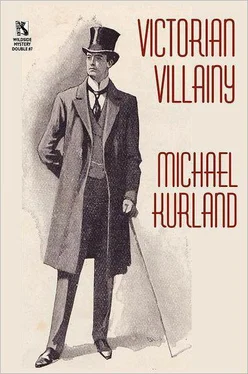
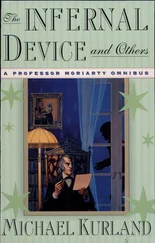

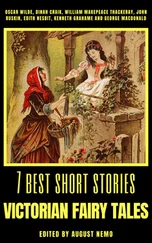




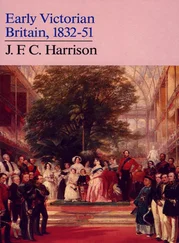
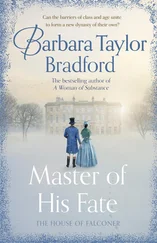
![Brian Thompson - A Monkey Among Crocodiles - The Life, Loves and Lawsuits of Mrs Georgina Weldon – a disastrous Victorian [Text only]](/books/704922/brian-thompson-a-monkey-among-crocodiles-the-life-thumb.webp)
